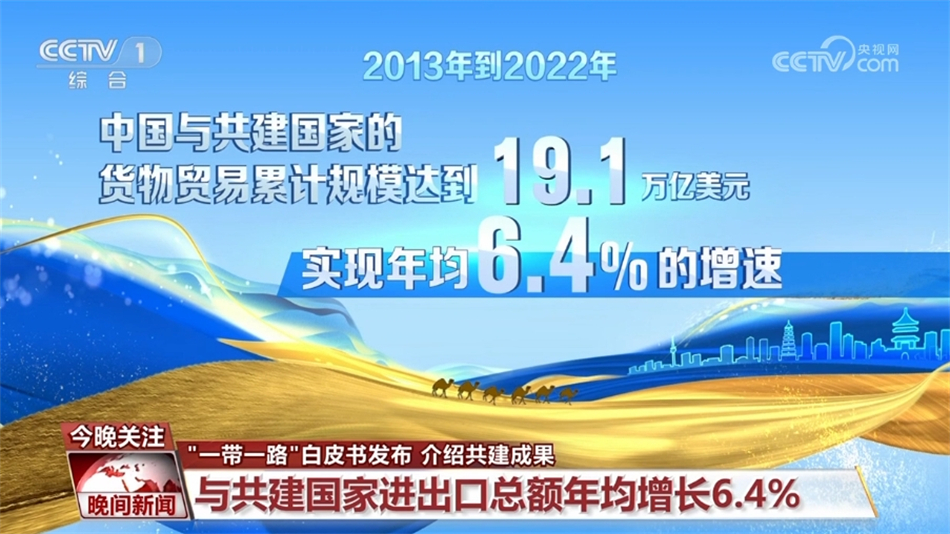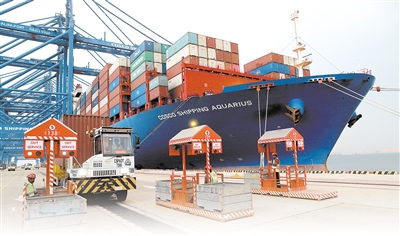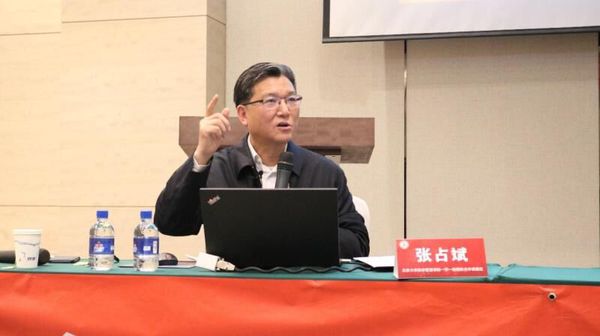Build A Think Tank Dialogue Platform To Help Build The Belt And Road Initiative
Build A Think Tank Dialogue Platform To Help Build The Belt And Road Initiative
The 2018 "Belt and Road" Media Cooperation Forum, co-organized by People's Daily, Hainan Provincial Party Committee and Provincial Government, was recently held in Boao, Hainan. As a supporting event for the forum
The 2018 "Belt and Road" Media Cooperation Forum, co-organized by People's Daily, Hainan Provincial Party Committee and Provincial Government, was recently held in Boao, Hainan. As a supporting event of the forum, the "Belt and Road" think tank symposium has built a high-end dialogue and exchange platform for participating companies and think tank experts.
With the theme of "Inspiration, Inspiration, Setting Navigation - Macroeconomics and 'Belt and Road' New Opportunities'", the experts and corporate representatives at the meeting held in-depth exchanges on the themes of the macroeconomic situation, new trends in the cooperation and development of the "Belt and Road" and brand building. The exciting opinions of the guests present are now compiled as follows for readers' enjoyment.
Promote the international layout of Chinese enterprises
Zhao Lei, Director of the Institute of International Relations and Belt and Road Initiative, Central Party School (National School of Administration)
The "Belt and Road" is a top-level design for sharing and win-win results. For Chinese cities, we must turn the "ends" of reform and opening up into the forefront of opening up to the outside world in the new era; for Chinese enterprises, we must actively promote global layout and shorten the distance with the European and American economic powers through reform. The real strength is to make up for shortcomings, integrate global resources, and make up for shortcomings in China's economy through "point-like" efforts.
Promoting the international layout of Chinese enterprises can expand the market, integrate resources, and complement each other's advantages; building factories overseas and exporting from abroad can also avoid foreign policy risks and market fluctuations risks; proactive strategic layout can also promote the branding of Chinese enterprises and products with internationalization.
Chinese enterprises should not only go global, but also go in and up, not only industrialized, but also branded and internationalized.
Tell good Chinese stories in world language
Fan Zhou, Dean of the School of Cultural Industry Management, Communication University of China
In 2017, my country's total import and export of cultural products to countries participating in the "Belt and Road" reached US$17.62 billion, accounting for 18.1% of the total import and export of cultural products, showing significant characteristics such as steady development of trade scale, greater diversification of international markets, and the construction of new channels for cultural trade in "Internet ". But at the same time, China's cultural industry also needs to break through the bottlenecks of imbalance in trade structure, weak international promotion platforms, frequent trade disputes, and insufficient innovation capabilities of cultural enterprises.
Cultural exchanges in the "Belt and Road" must first promote mutual understanding among the people, build cultural consensus, and handle the core issues of cultural values. Second, we must "deeply cultivate and meticulously" cultural resources and actively export cultural products. Third, "borrow ships to sea", develop together, and broaden communication channels. Fourth, we must strengthen talent cultivation and selection, strengthen industry-university-research connections, and tell China's own story in the world language.
Expand business layout with a global perspective
Zhang Yipeng, Vice President of Yili Group
Yili Group has taken solid steps in its global layout in recent years. First, it is due to the company's own development requirements, and second, it is based on the perspective of dairy food safety and nutrition. This requires Yili's vision not to be only focused on the domestic market, but must "go global".
Yili's internationalization strategy focuses on two key points: one is the integration of production resources. Yili has established the largest local Chinese-funded enterprise in New Zealand and has become Yili's large-scale dairy deep processing base; the other is the connection between intellectual talents. Yili has upgraded the Dutch R&D center into an innovation center this year to realize shared interactions among all platforms.
Chinese companies are not going smoothly for "going out" and need to respect local culture and open their hearts sincerely. Yili gradually conveys the concepts of upstream and downstream collaboration, sustainable development, social responsibility, ecological branding, etc. to local people through various forms of exchange, dispelling the other party's concerns and gaining local recognition.
Deepen the potential of economic growth through reform
Liu Shijin, member of the Monetary Policy Committee of the People's Bank of China
The current main task of China's economy should be to improve quality. There are not many new growth points and great growth potential, but the potential needs to be deeply explored through reform.
First, the development of metropolitan areas and rural revitalization. China's metropolitan areas such as the Guangdong-Hong Kong-Macao Greater Bay Area, the Yangtze River Delta, and the Beijing-Tianjin-Hebei region are accelerating their development. The current rural areas will become future towns, which contain huge growth potential, but releasing the potential must solve the problem of land, personnel, funds and other factors between urban and rural areas.
The second is to reduce costs, and we should work hard on the five basic costs of enterprise energy, logistics, communications, financing and land. These areas require the introduction of new players, encourage competition, and create new investment opportunities.
Third, the service industry is open and we must promote the development of knowledge-intensive service industry. Productive service industry should focus on promoting production transformation and upgrading, and life-oriented service industry should release its vitality through reform.
The Belt and Road Initiative is an opportunity for development of central enterprises
Mao Yixiang, Director of the News Center of the State-owned Assets Supervision and Administration Commission of the State Council
The "Belt and Road" is an important opportunity for central enterprises to share development with the world. As of August 2018, central enterprises have undertaken 3,116 projects in the construction of the "Belt and Road". Among the infrastructure projects that have been started and planned to start, central enterprises have undertaken about 50% of the projects, and the contract amount accounts for more than 70%. In the fields of infrastructure construction, energy and resource development, international capacity cooperation, central enterprises have undertaken a large number of demonstration and driving major projects and projects, becoming an important force in promoting the construction of the "Belt and Road".
Xiao Yaqing, director of the State-owned Assets Supervision and Administration Commission of the State Council, previously stated that in the process of China's deepening opening up to the outside world, central enterprises will build more exchange platforms in the future, continuously enhance understanding and mutual trust with international peers, jointly plan ideas and measures for long-term cooperation, establish stable strategic partnerships, fully release cooperation potential, and continuously expand development results.
Inject new impetus into global economic development
Zhang Wei, Vice President of the Institute of International Trade and Economic Cooperation of the Ministry of Commerce
From 2014 to 2017, the scale of goods trade between China and countries jointly built the "Belt and Road" has steadily maintained at the level of around US$1 trillion, the proportion of service trade has steadily increased, two-way investment has grown steadily, and contracting engineering business has developed rapidly. A large number of transportation, energy cooperation and information network interconnection projects are accelerating the construction. China has established 75 overseas economic and trade cooperation zones in the "Belt and Road" countries, and has established 17 border economic cooperation zones and 2 cross-border economic cooperation zones in border provinces and regions, becoming an important platform for promoting participation in national economic and social development and deepening economic and trade cooperation.
The "Belt and Road" has driven the formation of a new pattern of all-round opening up with internal and external linkage, land-sea coordination and mutual assistance between the east and west, injecting new impetus into global economic development, providing new solutions for improving global governance mechanisms with a more inclusive international economic cooperation model, and providing new paths for solving global development imbalances with the concept of win-win cooperation.
Learn from the experience of Internet development
Jiang Qiping, Secretary-General of the Information Technology Research Center of the Chinese Academy of Social Sciences
The Internet is upgrading from the commercial Internet to the brand ecosystem, and this development experience is worth learning from.
From an economic perspective, the key to promoting the "Belt and Road" initiative is to create win-win economic benefits.
From the perspective of industrial upgrading, we must adjust the structure and promote the transformation from product upgrade to service upgrade, from product trade to service trade, and upgrade brand value to high-end services and experience.
From the Internet perspective, we must apply the development experience of the Internet to the construction of the "Belt and Road" to build a platform, improve value, and build a new business foundation. Among them, platformization is the basis, and each other is a platform, which can evenly allocate fixed costs and save average costs; each other is an application, which can increase added value and increase economic profits. We should strive to achieve the complementarity between the platform and the application and improve the efficiency of specialization.
Create a full-process vaccine ecological platform
Wang Guangsheng, assistant general manager of Qingdao Haier Biomedical Co., Ltd.
As a biotechnology company under Haier Group, Haier Biomedicine actively participates in the "Belt and Road" global immunization program and provides comprehensive biotechnology solutions.
Faced with the problems of insufficient energy supply in Africa and other places and unmanned maintenance of preservation equipment, Haier Biomedicine has built a full-process vaccine ecological platform from production, transportation, customs clearance, warehousing, distribution, installation and maintenance, opening up the "last mile" of vaccine safety and launching a solar vaccine storage box that can be kept in heat for 120 hours even on rainy days.
At present, Haier Biomedicine has cooperated with 48 countries of the Global Vaccine Alliance, entered 78 countries and regions including the countries participating in the "Belt and Road" initiative, and has saved the lives of 5 million African children and protected the health of 200 million children around the world. In the future, Haier Biomedicine will continue to iterate and upgrade in the field of health.
"People's Daily" (16th edition, November 28, 2018)
(Editor: Zhao Yan (intern), Fan Haixu)





